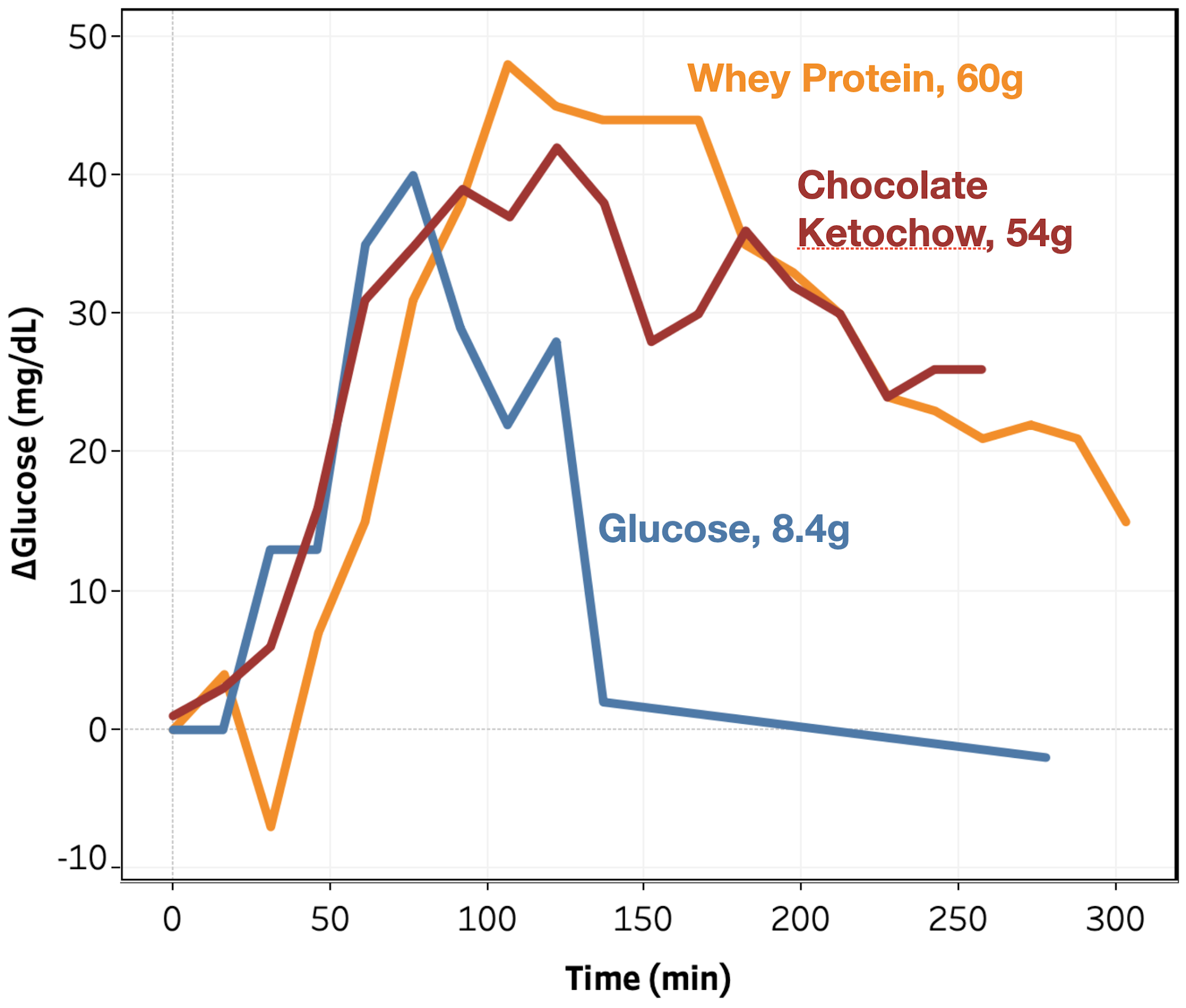Get new posts by email or rss feed
I’ve got my medication re-tuned and my blood sugar is much more stable, so I can start doing more interesting experiments.
Measuring the effect of different macronutrients and low-carb ingredients was really informative. In particular, I’m both fascinated and very disturbed at the huge variation in blood glucose impact of fibers that are listed identically on nutrition labels.
I’d like to continue these kind of experiments, but they were very time consuming and the frequent extended fasts were disruptive to my normal routine. To get around that, I’m going to focus on foods & supplements where I’m looking for relatively binary outcomes (i.e. large effects) and therefore can accept the larger uncertainty associated with not fasting and lower numbers of replicates.
With all that, my plan is to test the effects of popular dietary supplements and low-carb foods to see if claims about them really hold up. To avoid wasting a lot of time chasing after BS fads, I’m going to focus on supplements & foods that are either reasonably supported in the academic literature or otherwise appear to have solid data backing them up.
Lastly, it’s widely believed that the relative blood sugar impact of foods varies from person-to-person. If you’re interested in helping me to quantify that, let me know in the comments or send a via the contact form or to quantifieddiabetes_at_gmail.com.
Planned Experiments:
- Baseline:
- Glucose re-test:
- Fasting re-test
- Low-carb foods:
- Ketochow: Started 9/26
- Carbquick
- Eggs
- Supplements:
- Vinegar
- MSG
If you have any suggestions for supplements or foods to add, please let me know in the comments or send a PM via the contact form or to quantifieddiabetes_at_gmail.com.
Preliminary Results: Ketochow
I don’t want to go a week without posting any data, so here’s some preliminary results from my Ketochow experiments.

Ketochow is a low-carb meal-replacement that is designed to have all the macro- and micro-nutrients you need to stay healthy. I have it for breakfast and lunch most days. It’s extremely convenient and surprisingly good. I prepare 16 meals at a time and keep them in the fridge. When it’s time for a meal, I just add hot water, mix, and wait for my insulin to kick in; about 1 min. total prep. time (all-in). It also comes in 18 different flavors, so I can rotate through the ones I like and not get bored.
I’ve been using Ketochow for years, so I’ve got my insulin dose pretty well tuned for it. However, I’ve never actually measured it’s BG impact directly. A couple days ago, Chris Bair, the owner of Ketochow posted to Reddit about the Glycemic Index for Ketochow. You can’t do a standard glycemic index test, though, as that requires measuring the impact of an amount containing 50g of digestible carbohydrate. For Salted Caramel, that would 62 servings or 2.75 kilograms of Ketochow, which would be impossible to eat.
That said, while the blood sugar rise from carbs should be near zero, the protein should have a small effect due to gluconeogenesis. Since have Ketochow twice a day, I figured I should test it. Towards that end, I consumed 1.1 servings of the chocolate ketochow (54g, my normal amount) mixed with hot water to a total volume of ~12 oz. I then monitored my blood sugar every 15 min for ~270 min.
I’m going to run additional tests with other flavors and with fat sources added, but you can see the preliminary results in Figure 1. The Ketochow was comparable to a similar mass of whey protein, but with a slightly faster rise. This is consistent with the bulk of the macros coming from protein and dietary fiber.
All-in-all, pretty much what you’d expect from the nutrition label and the fact that I need such a small amount of insulin to cover the meal. Someone without diabetes would almost certainly not be able to observe and blood sugar impact at all.
– QD